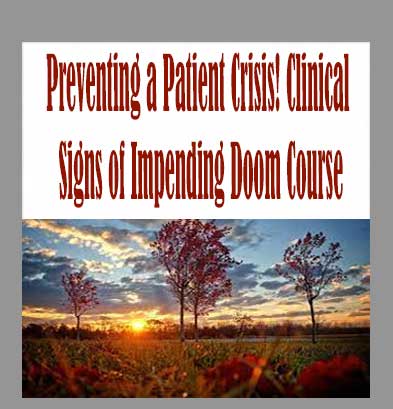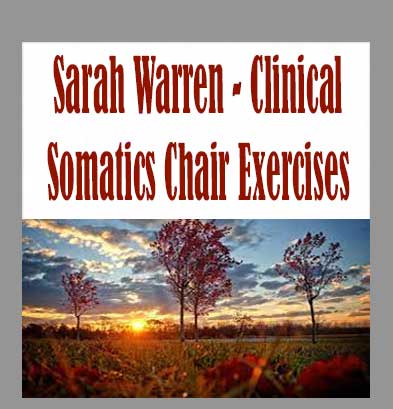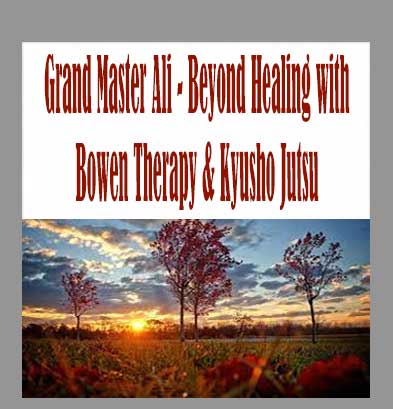
Description
Preventing a Patient Crisis! Clinical Signs of Impending Doom Course download , Preventing a Patient Crisis! Clinical Signs of Impending Doom Course review , Preventing a Patient Crisis! Clinical Signs of Impending Doom Course free
Preventing a Patient Crisis! Clinical Signs of Impending Doom Course
You know that feeling. That feeling you get when something with the patient is just off. It is not to be ignored. Preventing a Patient Crisis! Clinical Signs of Impending Doom Course has been designed for RNs, NPs, and APRNs who want to catch the early warning signs and interpret them within the whole patient picture.
Advance your knowledge — and confidence — with this unbelievable training! You’ll have access to 16 expert clinicians who will deliver the details you need NOW for quick patient interventions.
• Anticipate Post Operative Complications
• Dangerous EKG Rhythms
• GI Bleeds: Detect Causes & Management Best Practices
• Documentation & Practice Pitfalls
• Diabetic Emergencies
• Cardiac Output Manipulations for Hemodynamic Stability
• Rapid Stabilization Interventions for the Deteriorating Patient
• Innovations in Wound Care
• Most Recent Surviving Sepsis Campaign Guidelines
• Management of the Patient in Alcohol Withdrawal
• Tools to Better Predict and Prevent Falls & more!
That’s not all! Following the chaos, it’s important to find the stress relief. Experience Nurse Blake’s electric energy and unforgettable nurse humor through an exclusive and inspiring message!
Course Highlights
- Practice enhancing insights from 16 expert clinicians
- Experience Nurse Blake’s electric energy & nurse humor
- Catch the early warning signs to avoid a patient emergency
- Includes 9 FREE bonus videos to watch at your convenience
- Packed with the latest guidelines and evidence updates
- Watch the videos at your own pace
Medical-Surgical Emergencies Course: Train with Nurse Blake & 16 Med-Surg Bedside Experts!
Join your trailblazing expert presenters who walk the talk. They see patients in their respective specialized practice settings. Not only will they synthesize the latest coming from evidence but will also deliver tips and advice learned through their extensive patient care experiences.
Discover Your Nursing Power — with Nurse Blake, the Largest Nurse Influencer & Advocate!
Nurse Blake BSN, RN, has social media platforms that reach over 10 million unique individuals each month, and his viral videos have been viewed over 250 million times. Blake is a writer, a public speaker and has been a paid contributor to the New York Times. He recently released a children’s book I Want to Be A NURSE When I Grow Up, which was an Amazon bestseller. He uses humor to connect with audiences, as he reminds nurses of the power they have within themselves to contribute to positive changes in healthcare.
Dangerous EKG Rhythms: Detect Clues between the EKG & Assessment Findings
- Quick identification of dangerous EKG rhythms
- Analyze case studies to detect rhythms, causes & treatments
- Correlate EKG clues with assessment findings
Cheryl Herrmann, RN, MS, APRN, CCRN, CCNS-CSC/CMC, is a cardiac clinical nurse specialist, who has been honored with the American Association of Critical-Care Nurses Circle of Excellence Award. She cares for patients in cardiac prep and recovery, cardiac catheterization, surgery, ICU, telemetry/progressive units, and at discharge.
Anticipate Post Operative Complications & Avoid Legal Ramifications
- Anticipation of surgery-specific complications to be prepared for
- Evaluation of anesthetic modes and related post-op complications
- Key airway, cardiac, and pulmonary emergency situations
Elizabeth Sheffield, CRNA, JD, has worked as a certified registered nurse anesthetist and attorney, specializing in medical malpractice. Her clinical experiences range from critical care, emergency department, anesthesia, and PACU.
Acute Upper and Lower GI Bleeding: Detect Causes & Management Best Practices
- GI bleeding assessment strategies for hemodynamic stability and resuscitation
- Current best practices to manage upper and lower GI bleeding
- Management of patients with gastrointestinal bleeding on anticoagulation
Peter Buch, MD, AGAF, FACP, is a double board-certified clinical gastroenterologist, currently leading a team that treats all GI conditions. Dr. Buch sits on editorial boards for numerous professional journals and is a highly sought-after international presenter.
Differentiate Spinal Cord Injuries and Syndromes
- Differentiate clinical syndromes that affect the spinal cord
- Specific nursing care required for various spinal cord syndromes
- An update on treatment of Guillain-Barre Syndrome
Ebonye Green, MNSc, ACNPC-AG, CNRN, SCRN, APRN, FNCS, is an inpatient Advanced Practice Registered Nurse for the College of Medicine, Department of Neurosurgery at University of Arkansas for Medical Sciences. She previously worked in some of the country’s top neurosurgical intensive units and Gamma Knife, including Johns Hopkins Hospital and Washington Hospital Center.
Diabetic Emergencies
- Identifying signs/symptoms for the 3 diabetic emergencies: hypoglycemia, DKA & HHNS
- Explanation of treatment and management protocols for each diabetic emergency
- Prevention strategies to take back into practice
Tracey Long, PhD, MS, MSN, RN, APRN-BC, CDCE, CCRN, CNE, COI, has worked in endocrinology, critical care, and primary care, earning degrees from Brigham Young University, Purdue University, and UNLV. Dr. Long is a Certified Diabetes Care and Education Specialist, has developed diabetes education programs, and teaches a diabetes educator certification course.
Documentation & Practice Pitfalls for Med-Surg Nurses
- Patient assessment and monitoring techniques — performed with increased precision
- Documentation strategies for high-risk patient situations
- Current trends in med-surg nursing malpractice
Pam Collins, MSN, CMSRN, RN-BC, has extensive nursing experience which includes work as a staff and charge nurse for medical-surgical units, leadership, and nursing professional development roles. She is dually certified in medical-surgical nursing from the American Nurses Credentialing Center and the Academy of Medical-Surgical Nurses. Pam continues to serve as an expert witness for plaintiff and defense medical malpractice cases. Additionally, she maintains her clinical medical-surgical skills, working as a Clinical Nurse Specialist.
PLUS, when you register today, you’ll receive 9 FREE video bonus sessions!
Emerging and Current Infectious Diseases
- SARS-CoV2/COVID-19 — what is new… A LOT!!!
- Monkeypox — very closely related to smallpox
- Hepatitis A, B, and C
- Tuberculosis: Still prevalent and highly contagious
Paul Langlois, APN, PhD, CCRN, CCNS, is a critical care clinical specialist in the Surgical, Medical, Neuro, CCU, and Trauma ICUs of Cook County Hospital, Chicago. Drawing on over 30 years of experience assessing and managing patients with life-threatening diseases, Dr. Langlois provides advanced-level training to nurses, physician assistants, nurse practitioners, and physicians.
Cardiac Output Manipulations for Hemodynamic Stability
- Analyze the three components of stroke volume
- Choose the best vasopressor for unstable patient scenarios
- Advance cardiac output understanding to improve your critical thinking
Cyndi Zarbano, MSN-Ed, CCRN, CMSRN, LNC, practices at Mayo Clinic in Rochester, MN as an ICU nurse. Through her 25 years of clinical practice, she has drawn expertise from a variety of intensive care/critical care/flight nurse roles. Her insights have been sought in legal cases for the past 12 years. Cyndi has been a requested presenter, speaking to diverse healthcare audiences throughout the country.
Sepsis and Septic Shock
- Assessment criteria
- Most recent SSC guidelines
- Implications for nursing practice
- Long-term outcomes for survivors of sepsis
Christa A. Schorr, DNP, MSN, RN, NEA-BC, is a clinical nurse scientist at Cooper University Health Care. Dr. Schorr has more than 25 years of clinical, quality improvement, and research experience in critical care. She has authored or co-authored more than 200 peer-reviewed articles and invited book chapters. Dr. Schorr was the group-head for the 2021 Surviving Sepsis Campaign Guidelines Long-Term Outcomes and Goals of Care Section.
Med-Surg to the Rapid Response Rescue!
- Develop a proactive, high-performance approach to respond to deteriorating patients
- Apply psychological safety considerations in rapid-response situations
- Incorporate advanced assessment concepts for “at risk” patients into your clinical practice
- Choose the best interventions for rapid stabilization of the deteriorating patient
Sean G. Smith, MSc, FP-C, C-NPT, CEN, CFRN, CTRN, TCRN, CPEN, CCRN-CMC (Adult), CCRN-K (Neonatal), CCRN-K (Pediatric), is a flight nurse-paramedic who has practiced and taught Trauma Care, Emergency/Critical Care and Prehospital Emergency Medical Services, both in the military and the civilian world. He holds degrees in nursing and molecular biology, is a graduate of Duke University’s Legal Nurse Consulting program, and completed a master’s degree through the University of Florida College of Pharmacy.
Let’s Talk Stroke! Recognition, Diagnosis & Treatment of Stroke
- Saving the penumbra: Reversible ischemia
- Neurologic assessment tools
- Stroke syndromes & stroke mimics
- Stroke management: Protocols, medications, endovascular therapy
Robin Gilbert, MSN, RN, CEN, CPEN, has extensive experience working in the emergency department, progressive care, intermediate care, and currently works as a regional manager for staff development. She has been an item writer for the Board Certification of Emergency Nursing (BCEN) and a contributing writer for the current CEN Review Manual.
Current State of Wound Care: Trends, Barriers, and Opportunities
- Innovations in wound care
- Technology is changing the way we practice
- Barriers to evidence-based practice
Elizabeth Faust, MSN, CRNP, CSWS, CWOCN-AP®, MAPWCA, and Frank Aviles, PT, PT, CWS®, FACCWS, CLT-LANA, ALM, AWCC, MAPWCA, will go over the latest trends in wound care and current hot topics.
Management of the Patient in Alcohol Withdrawal
- Formulate an appropriate treatment plan for patients with a history of alcohol use and alcohol withdrawal
- Understand the use of severity assessment scales to assess symptoms
- Identify the medical complications of alcohol withdrawal
JeanAnne Johnson Talbert, DHA, APRN-BC, FNP, PMHNP, is board certified in substance abuse/addiction treatment, and psychiatric/mental health. She currently owns her own clinical practice and is the medical director for three substance use disorder rehab centers comprised of residential, outpatient, and sober living programs.
Fall Prevention Solutions
- Better predict and prevent falls with effective fall prevention tools and strategies
- Consider out-of-the-box fall risk factors, like sleep and proprioception
- Fall risk and the Potentially Inappropriate Medication (PIM) Use in older adults
Shelly Denes, PT, CFPS, C/NDT, CGCP, provides practical solutions for your most challenging fall-risk patients. Shelly has built the presentation based upon today’s best practices, guidelines, and standards for individualized fall prevention goals. She is an expert in fall prevention and neuro-rehab with more than 25 years of experience treating patients with hemiplegia, neuromuscular disorders, TBI, and SCI.
Geriatric Assessment Strategies
- Physical assessment strategies
- Assessment for elder mistreatment
- Rapid screen for cognitive function
- Depression assessment tools
Susann Varano, MD, is a Yale University-trained physician certified in internal and geriatric medicine. Her expertise is sought currently as a geriatric consultant for medically complex residents/patients and as an adjunct professor teaching geriatric coursework to physician assistant students.
Frequently Asked Questions:
- Innovative Business Model:
- Embrace the reality of a genuine business! Our approach involves forming a group buy, where we collectively share the costs among members. Using these funds, we purchase sought-after courses from sale pages and make them accessible to individuals facing financial constraints. Despite potential reservations from the authors, our customers appreciate the affordability and accessibility we provide.
- The Legal Landscape: Yes and No:
- The legality of our operations falls into a gray area. While we lack explicit approval from the course authors for resale, there’s a technicality at play. When procuring the course, the author didn’t specify any restrictions on resale. This legal nuance presents both an opportunity for us and a boon for those seeking budget-friendly access.
- Quality Assurance: Unveiling the Real Deal:
- Delving into the heart of the matter – quality. Acquiring the course directly from the sale page ensures that all documents and materials are identical to those obtained through conventional means. However, our differentiator lies in going beyond personal study; we take an extra step by reselling. It’s important to note that we are not the official course providers, meaning certain premium services aren’t included in our package:
- No coaching calls or scheduled sessions with the author.
- No access to the author’s private Facebook group or web portal.
- No entry to the author’s exclusive membership forum.
- No direct email support from the author or their team.
We operate independently, aiming to bridge the affordability gap without the additional services offered by official course channels. Your understanding of our unique approach is greatly appreciated.
- Delving into the heart of the matter – quality. Acquiring the course directly from the sale page ensures that all documents and materials are identical to those obtained through conventional means. However, our differentiator lies in going beyond personal study; we take an extra step by reselling. It’s important to note that we are not the official course providers, meaning certain premium services aren’t included in our package:
Refund is acceptable:
- Firstly, item is not as explained
- Secondly, Item do not work the way it should.
- Thirdly, and most importantly, support extension can not be used.
Thank you for choosing us! We’re so happy that you feel comfortable enough with us to forward your business here.








Reviews
There are no reviews yet.